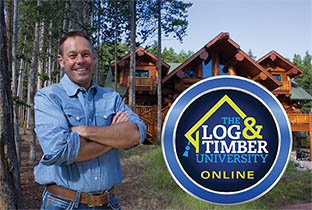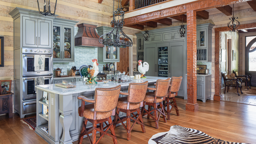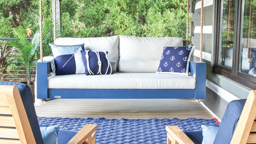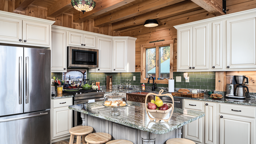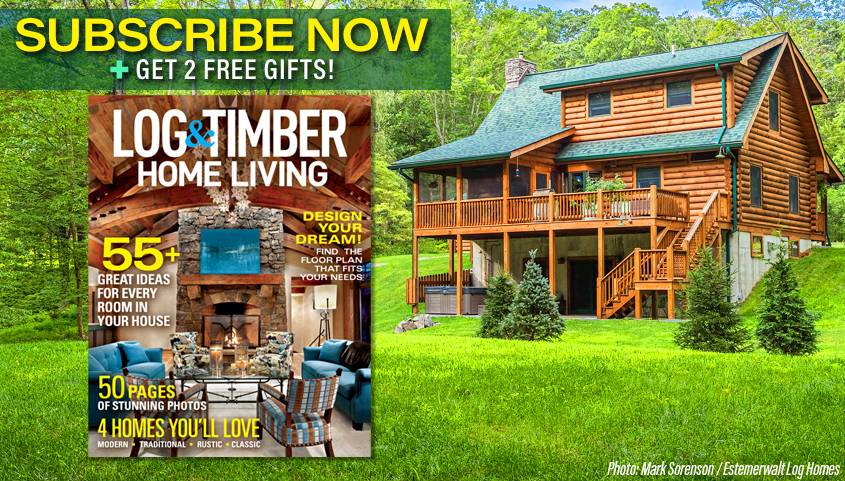

There’s been a lot of talk lately about exotic wood. It intrigues buyers and creative home builders, and that curiosity leads to questions. Why is it more expensive? Is it sustainable? What’s so “premium” about it anyway?
There are hundreds of wood species that fall under the “exotic” label, each bearing its own appeal and unique history. To get a better understanding of exotic woods’ variances and of the journey from foreign forest to your domestic domicile, we spoke with Dan Ivancic, director of marketing for Advantage Lumber. He’s been supplying exotic-wood decking since 1992 and is here to clear up our questions.
LHL: Obviously, exotic hardwoods are more expensive than traditional options, like common domestic species or pressure-treated lumber. What are the cost benefits to choosing an exotic species?
Dan: Soft domestic woods can have limited longevity, especially outdoors on horizontal surfaces, such as decks, where they see prolonged exposure to rain, snow or ice for extended periods before they dry out. Exotic woods are naturally resistant to rot and decay for upwards of 75 years with no maintenance (if you’re ok with the weathered-gray look). You’ll most likely need to replace a softwood product three times over before you’d need to replace an exotic wood — not to mention the more involved maintenance of softwood and the cost incurred for that maintenance.
LHL: What’s the difference in longevity? How often do they need to be stained/sealed?
Dan: Hardwood decking and siding products, such as Ipe, Cumaru, Tigerwood, Massaranduba and Garapa are all South American hardwoods that have been proven to last with little to no maintenance. They are some of the hardest, most dense wood species on Earth. Wood-boring insects can’t even chew through them.
Like all wood, the sun will eventually bleach the color out and it will turn to gray. However, unlike softwoods that require a water sealer to keep the wood from rotting, exotic hardwoods don’t require sealant because they’re naturally rot resistant. The only thing you need, if you want to keep the rich color of the wood, is a UV-resistant oil, which is simply rolled or brushed on. Eventually it will fade away, and you’ll need to apply more. To keep the color intact in high-sun-exposure areas, you may need to re-oil the decking yearly. Other areas can get away with an every-other-year re-application.
LHL: Is exotic hardwood used for particular projects?
Dan: Most of our customers use it for exterior applications, especially decking, siding, fencing and even soffit-and-fascia material. We also mill interior flooring in the same species. These woods have some of the highest Janka hardness ratings, which is a test that measures resistance to denting from things like high-heel shoes, kids and pets. Denting in your hardwood floors will eventually force you to refinish your flooring, provided you bought a solid product with an adequate wear layer that can be sanded.
LHL: What do exotic hardwood species cost?
Dan: It varies. For Australian Cypress the cost is $7.50 per square foot. This is most commonly sold as flooring, and we don’t sell a whole lot of it since there are better, more durable species for less money.
Ipe (our best seller) is one of the more commonly recognized exotic species, and 1-by-6-inch decking is currently selling for $3.09 per lineal foot. Cumaru decking is $2.15 per lineal foot. Tigerwood is $1.98 per lineal foot and has a very striking striped effect to it.
See also 6 Tips for Flooring Your Log Home

LHL: The higher-priced woods … is that due to rarity or quality?
Dan: These species come all the way from South America, and there’s a great deal of work and investment that goes into making sure the lumber is being harvested responsibly, not to mention the cost of shipping them all the way to the United States for resale. So the importing process, plus the quality and longevity of the wood, is what makes them more expensive. The decking is actually priced competitively if not cheaper than the composite products that big box stores sell.
LHL: Are there any sustainability concerns about exotic hardwood or are they plentiful for harvest?
Dan: We own two mills in Brazil so that we can control the process and ensure everything is sustainable. All of the lumber we harvest is regulated by the Brazilian government agency IBAMA, which oversees the preservation and conservation of natural resources. In addition, the wood is screened by the U.S. government when it arrives in the country to verify Lacey Act compliance. To take it one step further, all of our factories are FSC certified, and we work with the Rainforest Alliance to certify these FSC products. Many people blame lumber companies for deforestation, and that’s understandable, since we are the ones using the lumber.
What they aren’t aware of, however, is that in countries like Brazil, farmers slash and burn massive tracts of land for commercial farming. The trees are a nuisance to them, and lumber companies like ours are trying to teach them they are a necessity and a valuable renewable resource. The FAO (Food and Agricultural Organization of the United Nations) stated in their latest 2016 study that commercial agriculture accounted for almost 70 percent of deforestation in Latin America. It’s not necessary to cut down forests in order to produce more food, says The State of the World’s Forests 2016 report. (For more information, visit fao.org/americas/noticias/ver/en/c/425600.)
Advantage Lumber has been one of the first companies to introduce other plentiful species such as Cumaru, Tigerwood and Massaranduba, not just Ipe. These other species have nearly identical properties and lifespan and are very abundant.
LHL: What is the manufacturing process?
Dan: We import the raw materials from our mills in Brazil to our four factories throughout the United States. We then custom mill the lumber per order into decking, siding, V-groove ceiling, railing, etc. We can custom mill any profile on our CNC milling equipment.
LHL: Why should a buyer choose exotic wood over common options?
Dan: If you are looking for a low-maintenance interior/exterior wood option that’s proven to last and has a beautiful look that simply cannot be replicated by other materials, consider exotic hardwoods. Though they cost a little more upfront, the long-term benefits are hard to beat.
See also Value Propositions: Wood Flooring
